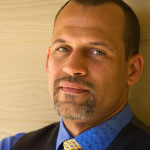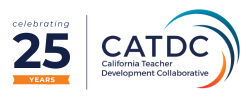What can jazz teach us about democracy…and our classrooms?

For you, what is important to know about America? Why does that matter? How might you impart this knowledge to your students? These questions are the starting point of The Jazz & Democracy Project® (J&D) Curriculum Think Tank, both a professional development institute and a growing network of 5th – 12th grade teachers integrating jazz into their arts and humanities classes. And before we go any further, no, there are no musical prerequisites for you or your students. For over a decade J&D has been teaching all kinds of students—locally, nationally and internationally—about democracy through the metaphor of jazz, and it is possible to access the power of this metaphor without actually being a musician.
But what can jazz possibly teach us about democracy? One fundamental concept is the importance of process and our place within it. Both jazz and democracy are an approach, one toward music, the other toward governing. Any outcome of that approach–be it the quality of music, or our lived experience in this nation–stems from our integrity of process: how do I balance my individual freedom within what is best for the group? This is evident on the bandstand in the form of freedom of expression. If I am a bass player, for example, how do I execute my role as a bass player in a way that is true to who I am and what I am feeling at this moment? The jazz tradition actually requires you to make a unique contribution; you receive little credit for mimicking someone else. And yet, the way you express yourself must always fit within the musical confines of each song as well as provide the same measure of freedom for your bandmates.
This balancing act highlights a core tension in any democratic process: how can I be free in my expression, yet in a way that doesn’t limit someone else’s? To explore this question, J&D relies on interviews with established and emerging jazz masters. Different from biographical interviews, J&D Exclusive Artist Interviews focus on craft and the musicians’ approach to those moments on the bandstand that mirror challenges in our politics, even our classrooms: What do you do when something totally falls apart? What is your approach to mistakes? What are the consequences of not listening to everyone else on the bandstand? If the bandstand is a metaphor for society, how jazz musicians navigate or quickly negotiate their ways through the hard moments proves instructive not just for our citizenship, but for our membership in a learning community. Thus, J&D teaches students how to be good “band members” in the classroom, as well as providing insights for good teaching, or good “band leading.”
The first J&D Curriculum Think Tank cohort immediately utilized the link between the characteristics of a good jazz musician and a good student, the good band and the well-functioning classroom. In a year where teachers met their students via an internet connection, they used the J&D Exclusive Artist Interviews to help define a learning community that had never shared the stage. Upcoming cohorts promise to include the most engaging part of J&D: working with live musicians in your classroom. So, as you soak up your first few weeks of a well-deserved summer break, spare some thought for this opportunity to make your classroom uniquely engaging next year. The next Curriculum Think Tank convenes the week after the July 4th holiday, and schools can contract for site PD, or send their teachers to cross-school convenings throughout the school year. In each case, teachers will experience first-hand a simultaneous focus on their individual talents, skills and backgrounds balanced with what’s best for their students and classrooms, as well as their newfound J&D professional learning community.

Dr. Wesley J. Watkins, IV, is the Founder of The Jazz & Democracy Project® (J&D), a music integrated curriculum that utilizes jazz as a metaphor to bring American democracy to life, enrich the study and teaching of U.S. history, government, civics and culture, and inspire youth to become active, positive contributors to their communities. “Dr. Wes,” as his students call him, first proposed such a curriculum as part of the Stanford University School of Education Undergraduate Honors Program. He conducted research for his undergraduate honors thesis at Oxford University where he engaged and learned from music educators at both local elementary schools and world renowned secondary institutions like The Bedales School, Eaton College, and The Yehudi Menuhin School. After earning his Ph.D. from the International Centre for Research in Music Education at the University of Reading, England, Dr. Wes immediately applied his knowledge as an independent arts education consultant in the San Francisco Bay Area, working at the district, school, and classroom levels. He then spent three years working for education reform non-profits where he facilitated professional development for teachers, instructional coaches and administrators. Dr. Wes is an avid music lover—particularly jazz and Afro-Cuban jazz—who loves to witness artists standing emotionally naked, transmitting their emotions to the audience, and modeling the best of what improvised music has to offer: a lesson in unity.
